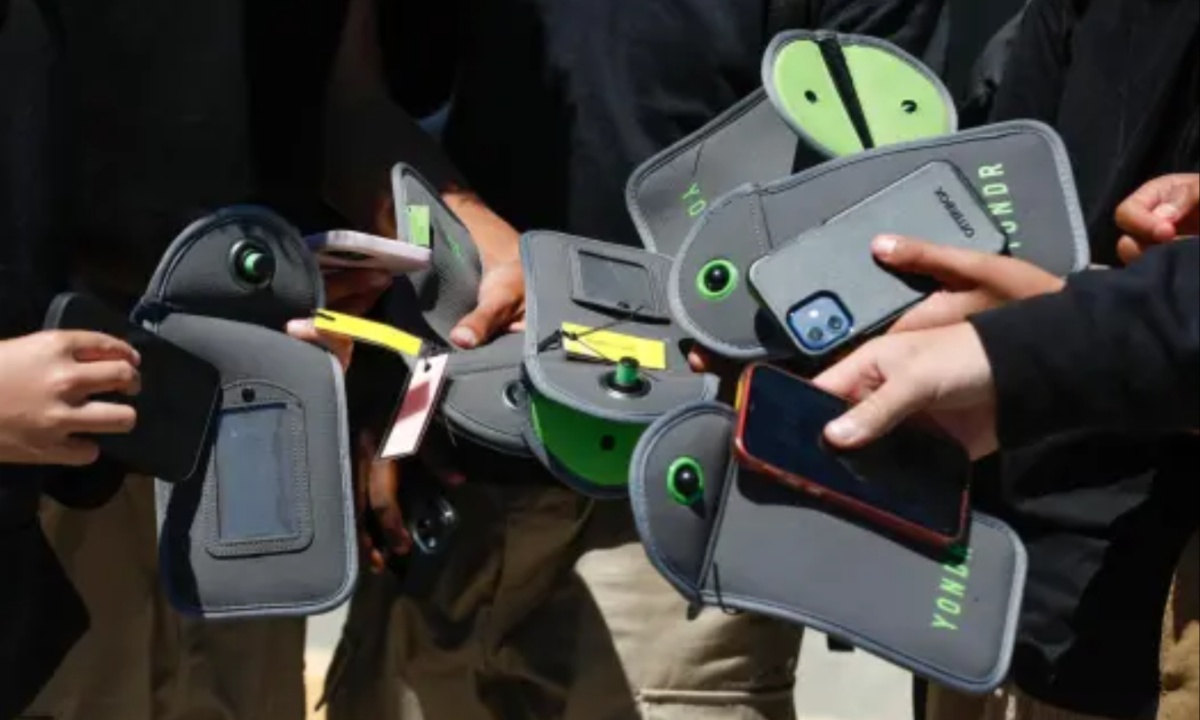The recent shooting at Apalachee High School in Georgia has intensified the debate over the role of cellphones in schools. During the incident, students used their phones to contact parents and send final messages, underscoring a key concern: while cellphone bans aim to reduce distractions, they can also hinder crucial communication during emergencies.
The tragedy, which resulted in four deaths and nine injuries, highlights the conflict between restricting phone use to limit distractions and maintaining a lifeline for students during crises.
Efforts to limit cellphone use in schools have gained traction due to worries about the impact of excessive screen time on mental health and classroom focus. Teachers have voiced concerns that phones disrupt learning, prompting various states and districts to implement bans.

Apalachee High School Shooting Sparks Debate Over Cellphone Use in Schools
However, critics argue that these restrictions could leave students and parents without a vital communication tool in emergencies, as evidenced by the Apalachee shooting where phones were used to alert parents and seek help.
National statistics show that 77% of U.S. schools have policies against cellphone use for non-academic purposes. Yet, these figures are misleading, as they do not reflect the actual enforcement or compliance rates. Both Republican and Democratic leaders have supported cellphone restrictions, with efforts ranging from grant programs for phone pouches in Arkansas to legislative pushes in California aimed at curbing phone use in schools.
The debate continues as school leaders seek to balance safety with educational policies. For example, Grand Island Senior High in Nebraska has implemented a policy where phones must be kept out of sight but acknowledges the need for effective communication during emergencies.
Advocates for phone-free schools argue that phones can distract students during lockdowns, but some schools are adapting their policies to address safety concerns while maintaining communication channels.
The Apalachee shooting has reinforced the perspective of many parents who view cellphones as crucial safety tools. Parents like Brandi Scire, who experienced the 2018 Parkland shooting, emphasize the importance of having a phone for emergency situations. This tragic event highlights the ongoing struggle to find a balance between limiting distractions and ensuring students can reach out for help when needed.























